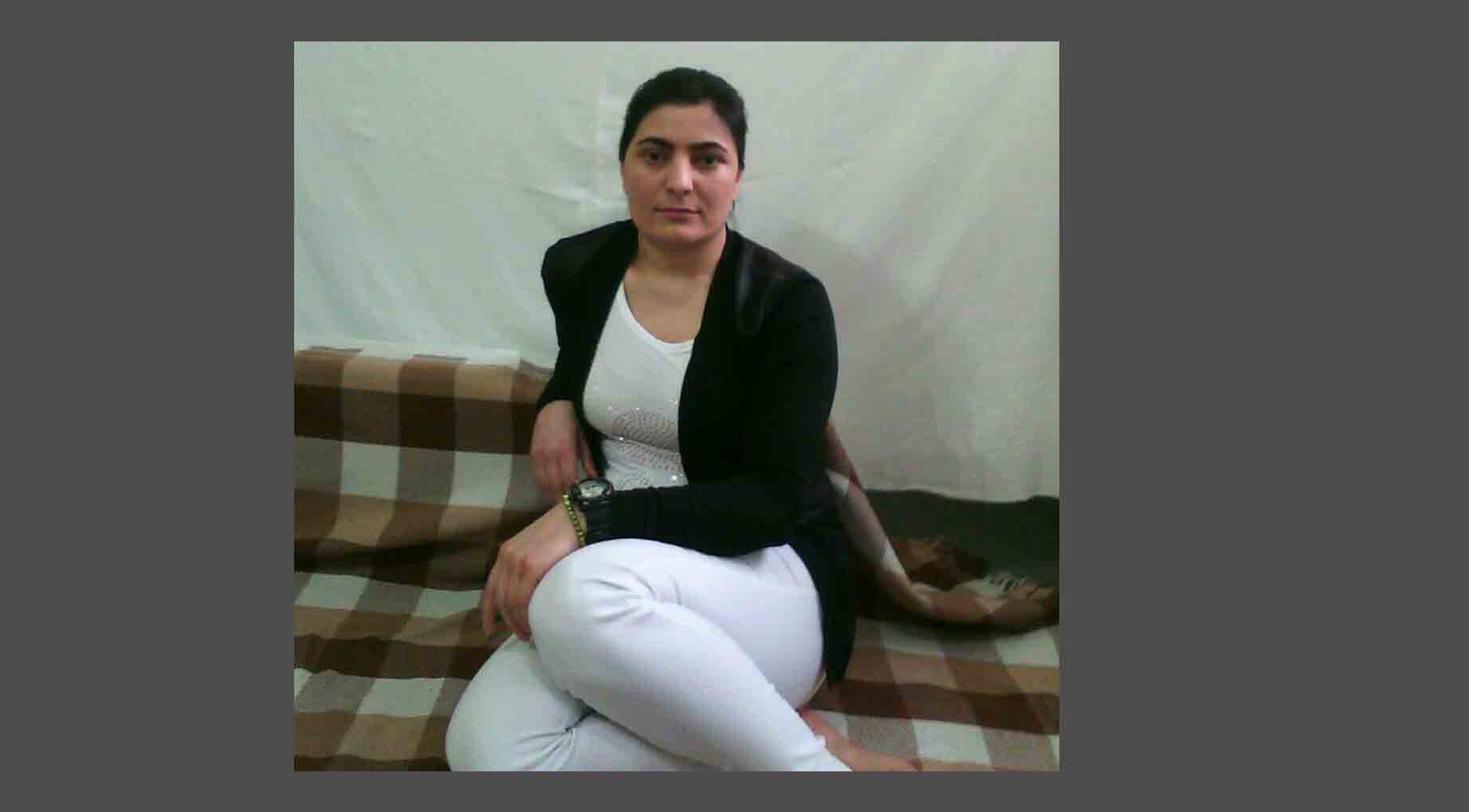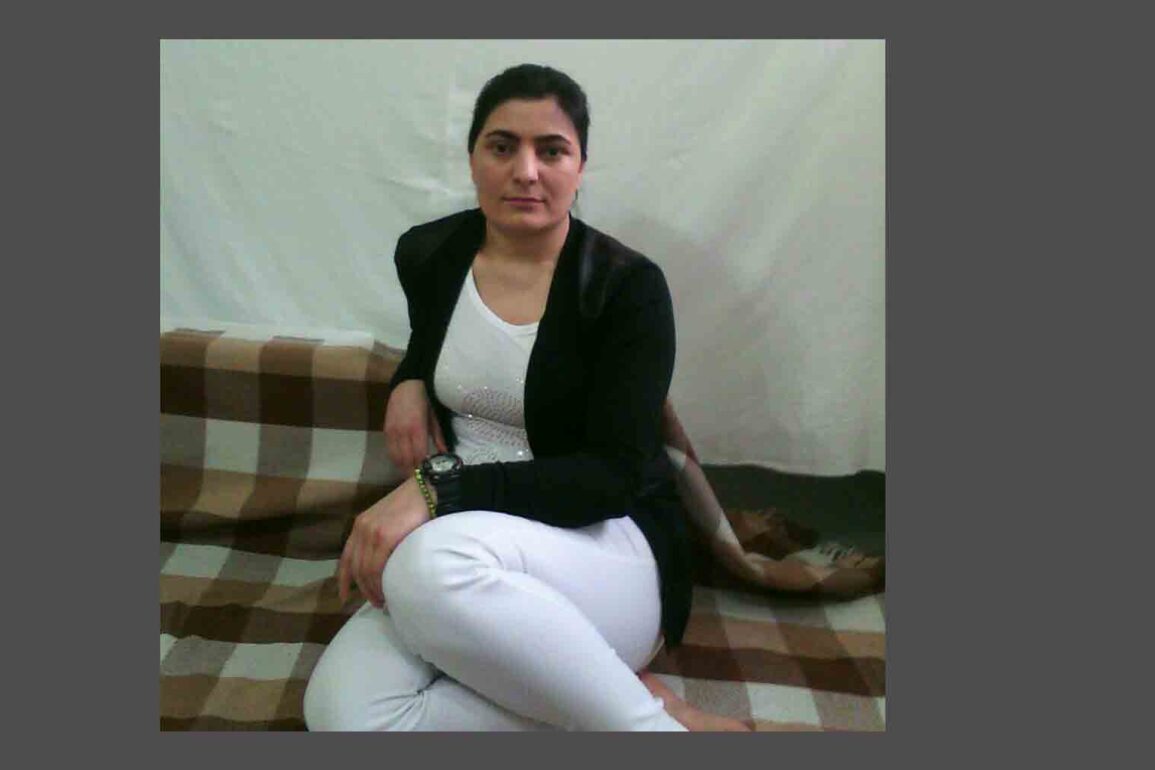
Zeynab Jalalian, a Kurdish political prisoner serving a life sentence, is facing deteriorating health conditions in her sixteenth year in Yazd Central Prison. Despite suffering from pterygium, foot-and-mouth disease (FMD), impaired vision, asthma, kidney and digestive problems, Jalalian has been denied medical treatment due to opposition from the Ministry of Intelligence.
Recently, Jalalian was interrogated by a Ministry of Intelligence team, restrained with handcuffs and shackles, and threatened with further denial of basic prisoner rights, including access to medical services, unless she expresses remorse.
A source who spoke to the Kurdistan Human Rights Network (KHRN), said: “Zeynab Jalalian’s eyes have been severely damaged by years of limited access to specialist medical care. She is even deprived of glasses, which she borrows from fellow prisoners to read.”
According to the source, in addition to her vision problems, Jalalian continues to battle lung and gastrointestinal infections, and her overall physical condition is compromised due to a weakened immune system.
The source added: “”In recent weeks, the political prisoner was transferred to the security office of Yazd Central Prison with handcuffs and shackles and interrogated by a three-member team from the Ministry of Intelligence. The security interrogators have told Zeynab Jalalian that she must deny a letter signed by her and several other women political prisoners, including Narges Mohammadi and Golrokh Iraee, which was published in Le Monde France. The interrogators also told her that, contrary to the traditional judicial process where the judiciary deals with prisoners’ cases, her case was under the jurisdiction of the Ministry of Intelligence and that the decision on whether she would have access to specialised medical services and whether she would be released after expressing remorse was within the competence of this security body.”
Despite the pressure, Jalalian refused all demands for remorse, considering the restrained interrogation a form of torture, the KHRN has learned.
On 6 June, after prisoners in the women’s ward of Yazd Central Prison celebrated Jalalian’s 41st birthday, the Prison Security Office summoned a group of these prisoners and threatened to file new charges against them.
Background
Since her arrest in Kermanshah on 26 February 2008, Jalalian has been forcibly transferred between prisons across the country without legal justification.
Similarly, on 9 November 2020, she was transferred from Khoy Prison, the closest prison to her family residing in Maku, to Yazd Central Prison without any legal justification.
About six months before her transfer, on 29 April 2020, security forces transferred her to Qarchak prison in Varamin, northern Iran.
Two months later, she was transferred to Kerman Prison and held in solitary confinement for a period of time while she was infected with COVID-19 and was on a hunger strike, demanding her return to Khoy Prison.
On 22 September 2022, security forces moved the political prisoner from Kerman Prison to Kermanshah Prison.
The authorities at Kermanshah Women’s Prison had initially refused to admit her to the prison because of the injuries she had sustained to her wrists and feet after being dragged to the ground in handcuffs and shackles by security forces.
Later, in Yazd prison, Jalalian was infected with COVID-19 for the second time. Despite her deteriorating physical condition, she was held in a room for addicted prisoners, with very poor hygienic conditions and no access to proper medical care.
After suffering from COVID-19 twice, she developed pulmonary problems and asthma due to a lack of proper medical care.
These illnesses, which have been confirmed by the prison doctor, are in addition to her previous illnesses, such as kidney and digestive problems, pterygium, foot-and-mouth disease, visual impairment, dental infections, etc., which she developed during her imprisonment and which were caused by the numerous tortures and harsh prison conditions, and have led to a further deterioration in Jalalian’s physical condition and health.
Not only has Jalalian been unable to receive family visits for the several years due to her movement between prisons, the distance between Yazd and her family’s home town of Maku, and restrictions imposed by the security services, but her right to telephone calls has also been limited to once a week and only with her parents.
Agents of the Ministry of Intelligence in Yazd Prison warned the political prisoner that if any information about her condition was leaked to the media by her and her family, it would increase the pressure on her and lead to her transfer to another prison.
In March 2022, security forces arrested Jalalian’s parents and three brothers in Maku after a video was released of her mother, Gozal Hajizadeh, talking about her daughter’s condition in prison.
Although the family members were released 24 hours later after Hajizadeh fell unconscious in custody, the Intelligence Ministry warned them not to disseminate information or speak to human rights organisations or the media about Jalalian’s condition.
The security forces also asked the family to speak out in a video interview against the activities of the political prisoner and Kurdish opposition parties, which they strongly refused to do.
Jalalian, born on 6 June 1982 in the village of Dim Qeshlaq in Maku, was arrested in Kermanshah on 26 February 2008.
After months of solitary confinement and severe physical and psychological torture at the hands of the Ministry of Intelligence in Kermanshah, she was sentenced to death by the Islamic Revolutionary Court on charges of “enmity against God” (moharebeh) for her membership of the Kurdistan Free Life Party (PJAK).
Although the sentence was later upheld by the Supreme Court, it was commuted to life imprisonment in 2011.
In 2016, the UN Working Group on Arbitrary Detention formally requested that the Islamic Republic of Iran immediately release Jalalian and take all necessary measures to compensate her for the harm she has suffered, in accordance with international law.
The UN Working Group on Arbitrary Detention described Jalalian’s continued deprivation of liberty as arbitrary and in violation of the Universal Declaration of Human Rights and the International Covenant on Civil and Political Rights, adding that Iran has an obligation to hold accountable those officials responsible for violating the political activist’s rights.
This post was originally published on this site be sure to check out more of their content.







